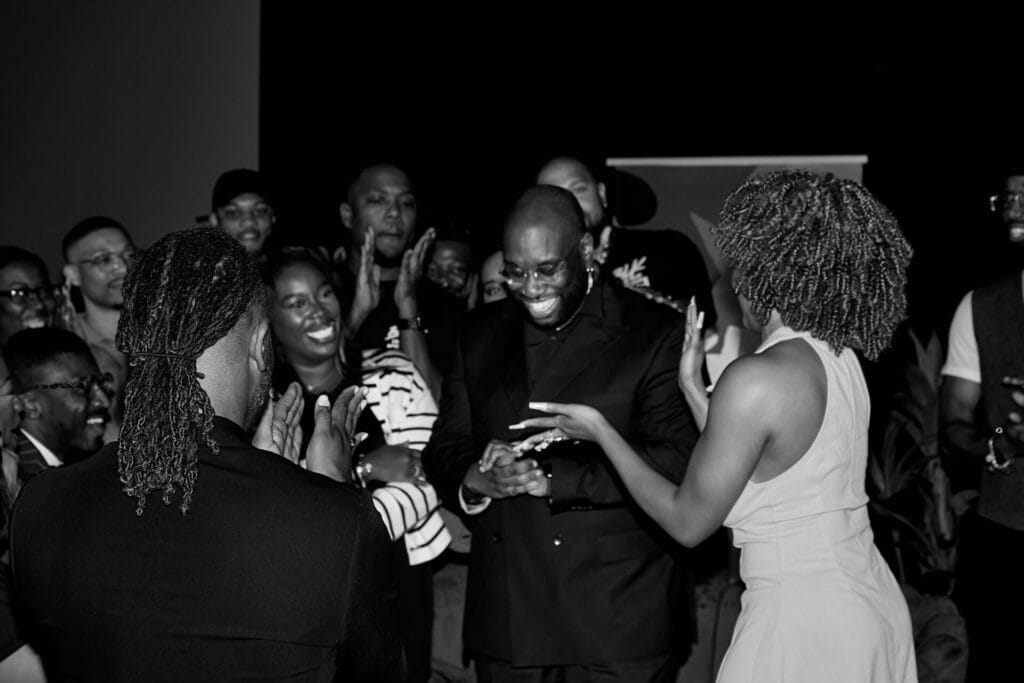On September 11, 2024, the Regency Hotel in New Orleans, LA, was host to the BLK in the South Summit, a groundbreaking one-day event focused on the Black community’s response to HIV in the Southern United States. This served as an official pre-conference to the United States Conference on HIV/AIDS, and with the theme, Southern Joy, a summit like this was necessary. With critical conversations centered on combatting HIV, the summit brought together community leaders, activists, educators, and students from Historically Black Colleges and Universities (HBCUs), as well as healthcare professionals and advocates. And despite a tropical storm expected to roll in later that day, spirits were still high and attendees were as excited as ever to connect and learn from each other through their work and passion for fighting HIV and stigma.
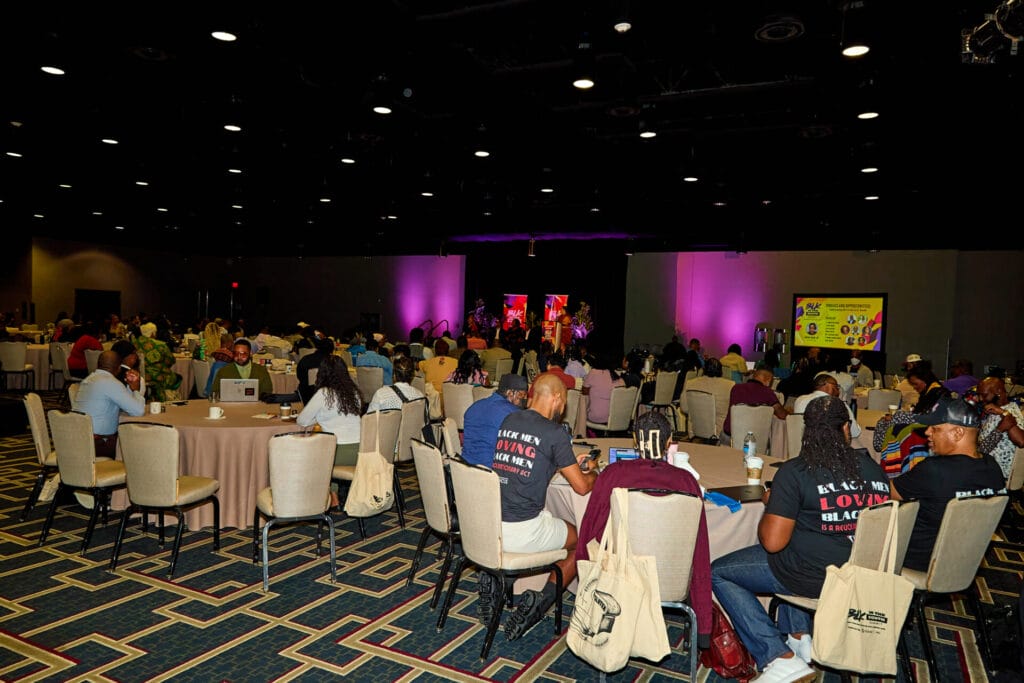
The day began with a powerful soul work session by Dr. David Wallace from the Dream House Lounge Foundation that set the tone and opened up the proper energy for the space, welcoming attendees. This then led into an ecumenical invocation by J. Christopher Johnson opening remarks from Marvell L. Terry II, Founder of Blk in the South, and Darwin Thompson, Sr. Director of Public Affairs at Gilead Sciences. The message acknowledged the immense challenges still facing the Black community, but emphasized the need for reinvigoration and continued dedication to dismantling systems of inequality. Their words motivated the room, as participants sought not just to reflect on progress but to actively engage in finding solutions.
Soon after, the first session of the day, A Conversation with HBCU Leadership and Students, unfolded. Moderated by Dr. Darryl Holloman of Spelman College, the panel explored the unique approaches HBCUs are taking to address HIV prevention, sexuality education, and student safety. The panel included esteemed participants such as Jay from the Howard University Student Association, Dr. Daryl B. Holloman of Spellman University, and Glenn Caston from Xavier University of Louisiana.
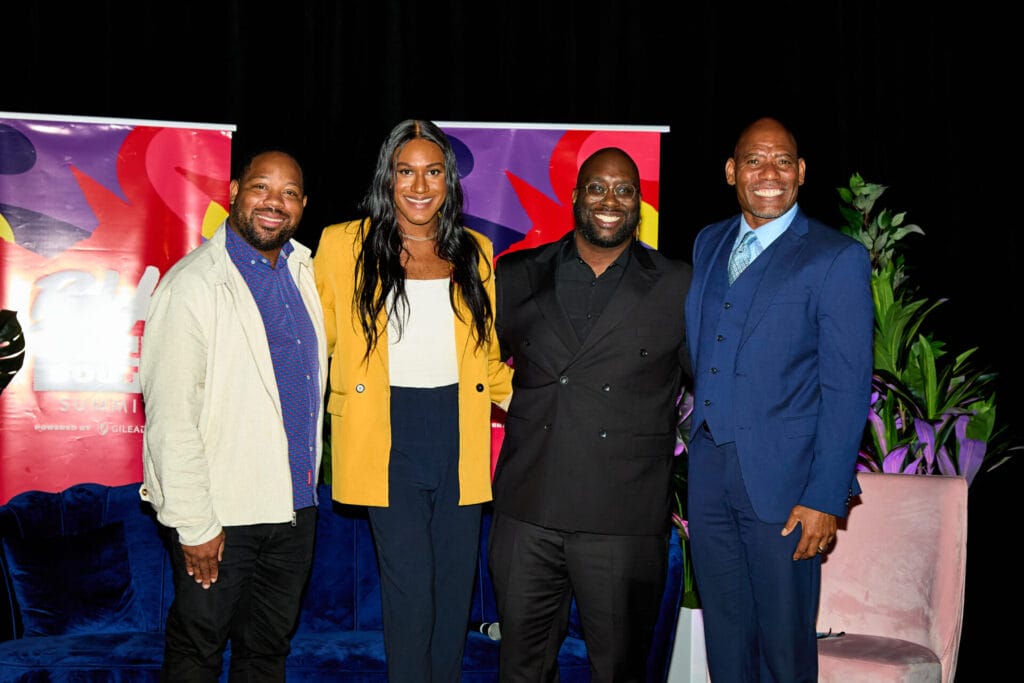
The discussion was enlightening, with panelists sharing diverse perspectives on how Black youth at HBCUs confront the 43-year-long HIV epidemic. The session highlighted the role of educational institutions in shaping the narrative and providing critical resources for students, with each campus tackling the issue in different ways, but all working towards the same goal — reducing the spread of HIV and providing support for affected students.
Another essential session, Threats and Opportunities: Combatting HIV in the Black U.S. South, examined the various systemic challenges and promising innovations in the fight against HIV. Moderated by Dafina Ward, JD, of the Southern AIDS Coalition, this discussion tackled a wide range of issues, from voting rights restrictions and poverty to harmful legislation, funding cuts, and HIV criminalization. The panel included thoughtful leaders such as Tori Cooper from the Human Rights Campaign Foundation, S. Mandisa Moore O’Neal of the Center for HIV Law and Policy, Alex Santiago of Destination Tomorrow, Reggie Smith of The Reggie and Donna Smith Foundation, and A. Toni Young from the Community Education Group.
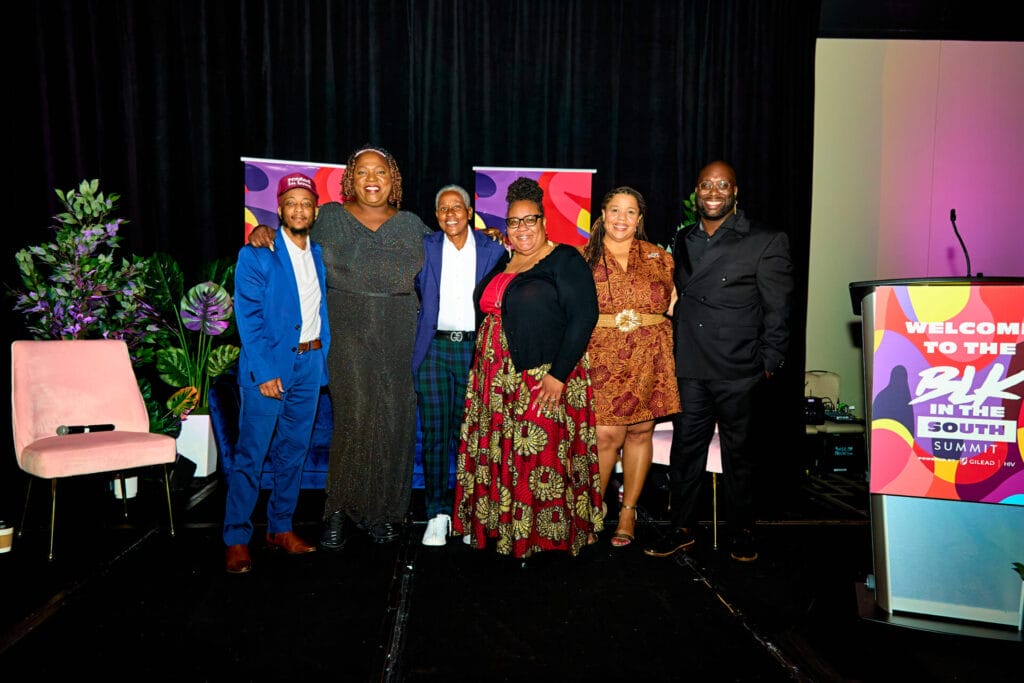
This session underscored the complexity of addressing HIV in the Black South, where advocacy for HIV prevention often intersects with broader social justice movements. Participants spoke passionately about seizing new opportunities, including the development of long-acting injectables, which offer new hope for treatment and prevention. This discussion not only addressed obstacles but also amplified the resilience and resourcefulness within the community to overcome them.
The next plenary session, Someday We’ll All Be Free, brought the summit to a close by exploring intersectional approaches to fighting HIV in the Black community. Moderated by Dr. Marissa Robinson from the Office of Infectious Disease, this discussion delved into the ongoing challenges and triumphs within subcommunities across the South.
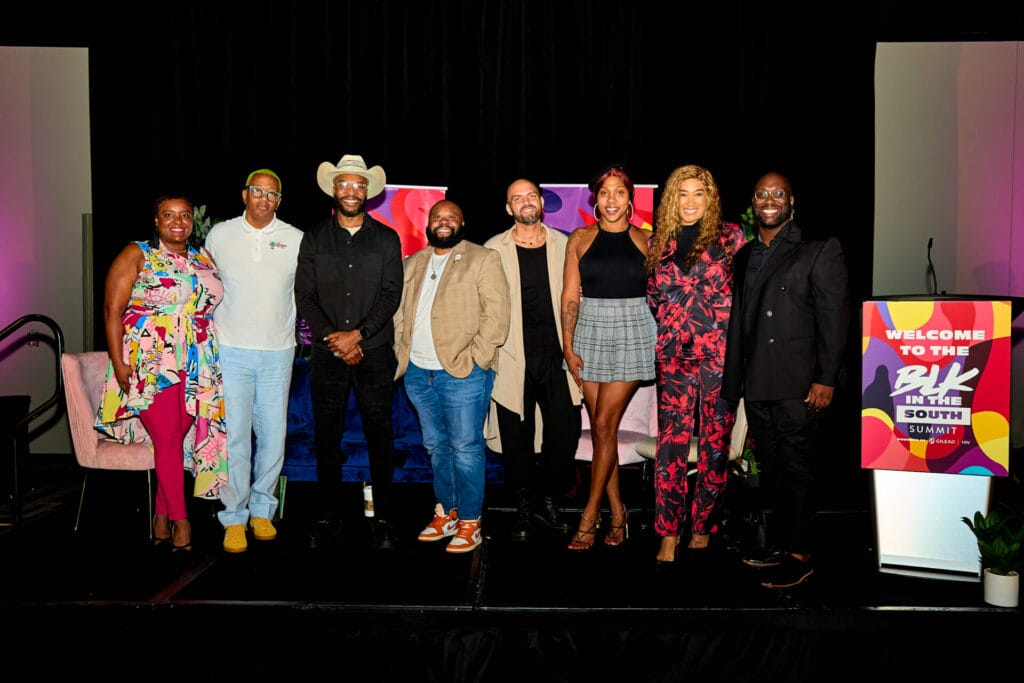
Panelists such as Larry Bryant of the Reunion Project, E. Lee Dyer IV of BONDS, Nathaniel Holley of The Freeluxeax Project, Joshua Jenkins of Black Gay, Stuck at Home, Sha’Terra Johnson from the Texas Black Women’s Health Initiative, and Milan Sherry of the House of Tulip shared their stories and strategies for navigating the intersection of Black identity and HIV. Their experiences reflected the ongoing need for innovative, culturally competent approaches that resonate with the communities most affected.
Finally, the Lunch Plenary, presented by GILEAD SCIENCES: A Spotlight on a Southern City: Memphis, brought attention to the unique challenges faced by marginalized communities in Memphis regarding HIV. As frontline workers shared the alarming rise in HIV diagnoses in the city and the impact of harmful legislation. Dr. Shanell L. McGoy, Senior Director at Gilead Sciences, moderated a conversation with local advocates like LaDeia Joyce, Jasmine Tasaki, and Daniel Thompson, who offered firsthand insights into the ongoing fight against HIV in Memphis.
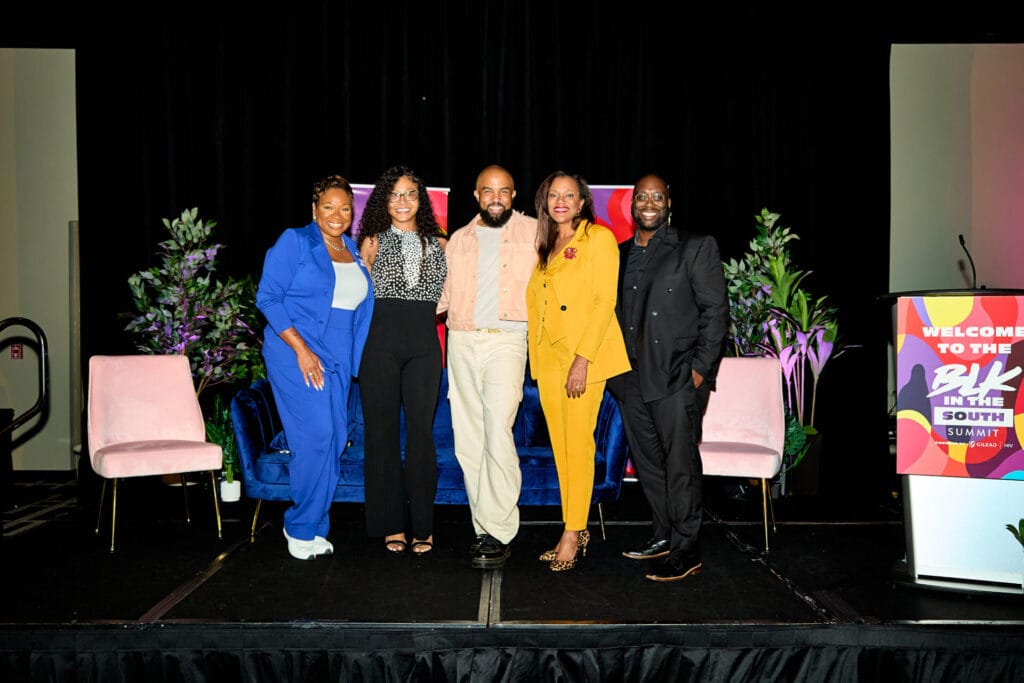
As the Blk in the South Summit concluded, Marvell Terry introduced Harold Phillips from NMAC, discussing how federal programs sustain long-term commitments to Black lives and HIV prevention and the critical roles of these programs in addressing HIV. Shortly after, DaShawn Usher, Sr. Director of GLAAD’s Communities of Color and Media Department, and Tymia “Ty” Ballard, Junior Associate of GLAAD’s Communities of Color and Media Department, spoke on the impact media and creatives have in the realm of advocacy and the direct connection between the arts and culture and social impact within the community.
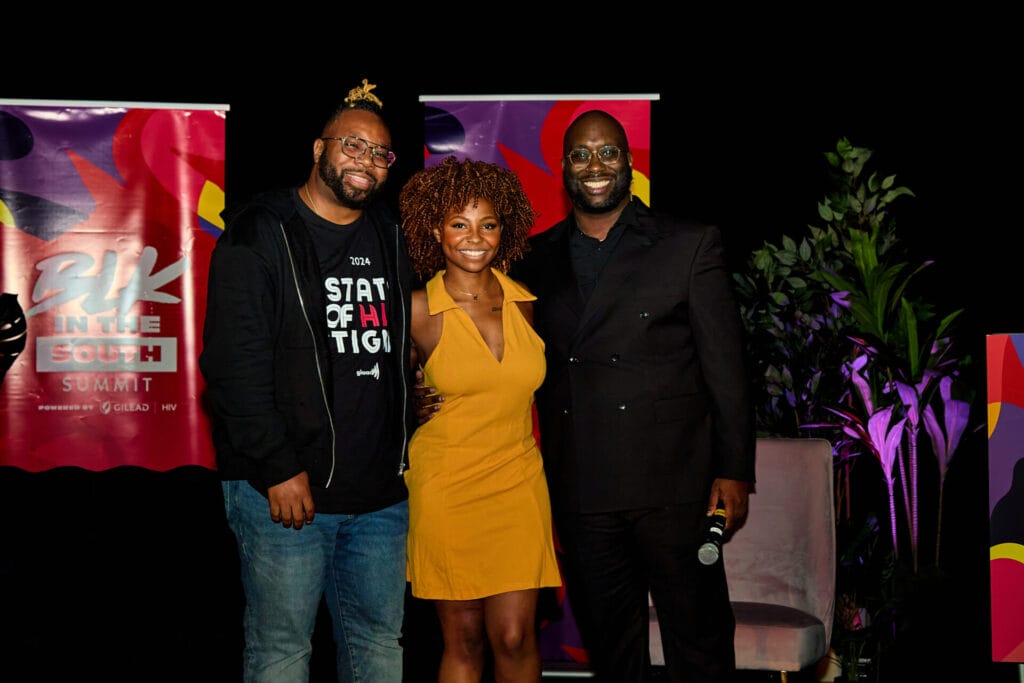
Marvell Terry then brought to stage the rest of the planning committee that made this summit possible. His message highlighted the intersectional nature of this fight, noting the diverse makeup of the committee. Many members came from fields outside of HIV, underscoring that the fight against HIV is linked to broader issues of social justice, from healthcare inequities to racial disparities. The summit’s focus on inclusivity and representation ensured that every voice had a seat at the table. And participants left with a renewed commitment to combatting HIV in the Black U.S. South. The day’s conversations illuminated both the complexity of the fight and the possibilities for a future where everyone is free from the stigma and impact of HIV.
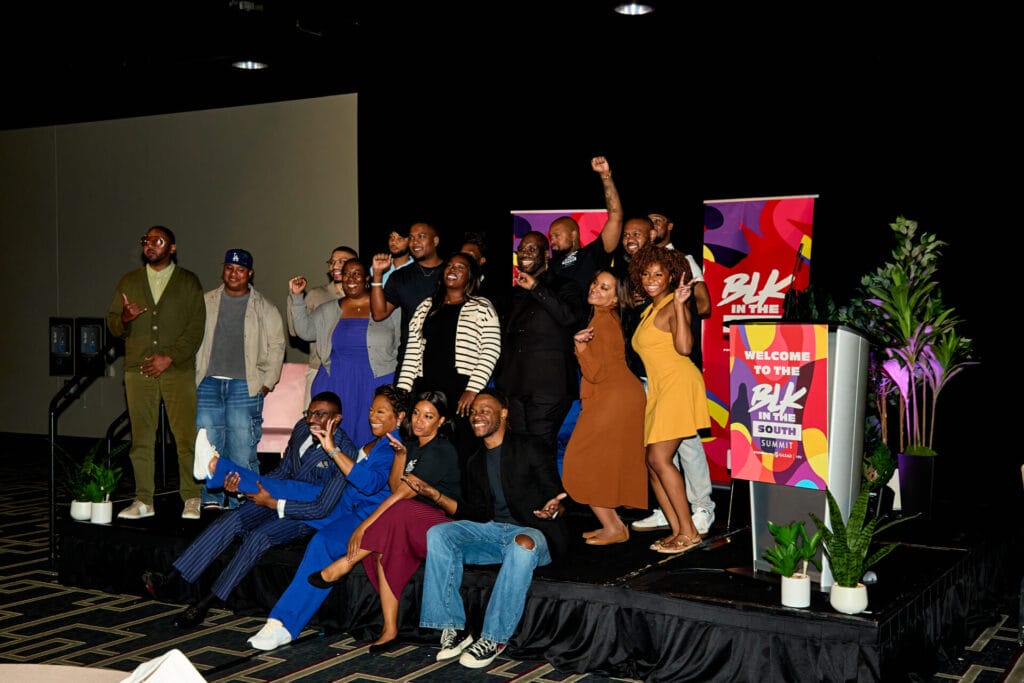
The summit was not just a space for dialogue but a catalyst for action. With support from presenting sponsor Gilead Sciences, Xavier University of Louisiana, and NMAC, the summit provided participants with the tools, knowledge, and connections to continue the fight for justice and liberation. Together, the Black South is rising, standing resilient in the face of adversity, and committed to securing freedom for all.

